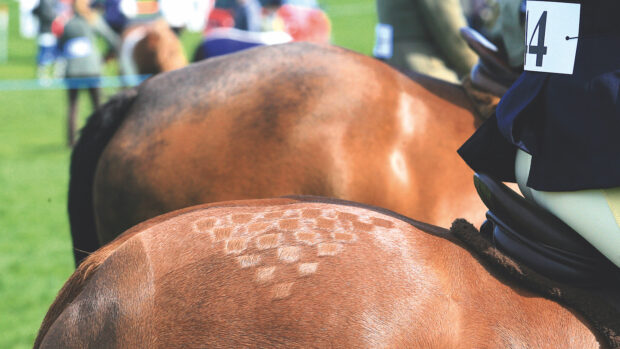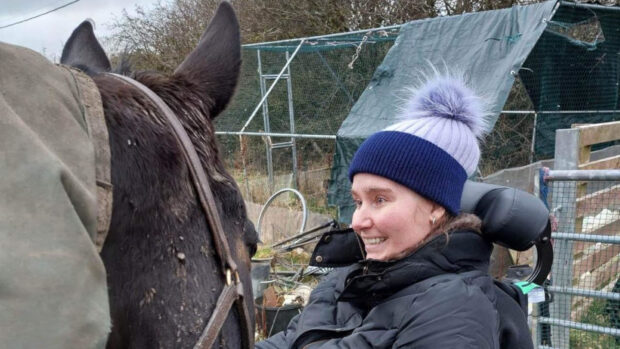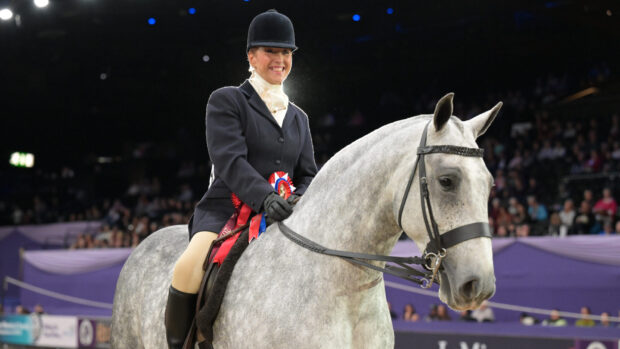Retraining of Racehorses (RoR) is the latest organisation to crack down on riders of unsuitable weight at its competitions by disqualifying anyone deemed to be too heavy for their mount.
The body announced this week (26 October) that it “reserves the right to disqualify competitors if in the opinion of the officials there is a mismatch between the weight and size of the rider and the horse”.
A statement said there has been “widespread concern that the welfare of certain horses is being compromised by overweight riders”.
RoR welfare consultant Brigadier Paul Jepson told H&H a number of people had been in contact about the issue.
“It’s been noticed there are a number of riders whose weight and level of riding ability is not a good fit for their retrained racehorses and it’s clearly not right,” he said.
“I think it’s a problem across the equestrian word, but it’s really about trying to get people matched to appropriately sized horses.”
RoR’s policy states that “as a general guide”, the weight of rider and saddle should be no more than 17% of the horse’s optimum bodyweight, “consistent with a body condition score of 3/5”. It adds that this means a 500kg thoroughbred can carry up to 13.5 stone.
“That’s a general guide, but there are so many variables,” Brig Jepson said.
“A slightly overweight but experienced rider on a fit horse is going to be much better than an unfit, overweight horse ridden by a not very balanced or skilled overweight rider.
“This is a bit of guidance, we’re not trying to stop anyone riding. Some people really enjoy their riding – but whether their horses enjoy it so much is another matter.
“We’re just saying, please get a horse appropriate to your size and level of skill.”
Brig Jepson said that if a rider is deemed too heavy at an RoR show, he or she will be spoken to by an official.
“Hopefully it can be done with feeling and diplomacy,” he added. “We don’t want to smack these people in the face.
“The fact they’re in that situation is probably from ignorance and they need guidance, but if we can get the message across to stop them acquiring an inappropriate horse in the first place, that would be best.”
Related articles:
- Overweight riders asked to dismount at show
- HOYS to crack down on riders of unsuitable weight
- Rules proposed to tackle issue of overweight riders
The judge’s decision on each case will be final.
“In the sort of competition we’re talking about, there can’t be any quibbling,” Brig Jepson said. “If the judge has decided you shouldn’t be competing on that horse, that has to be it.
“We’re trying to get the message out there to stop it happening, rather than to cure a problem that already exists – it’s educational.”




